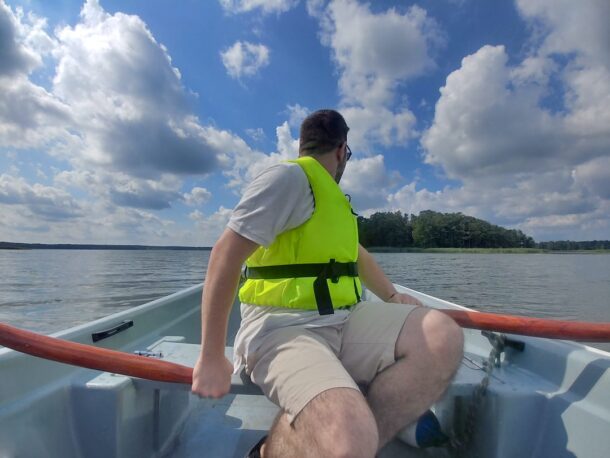There’s something about boating that makes it more than just cruising around on the water. You get to relax, connect with nature, and forget about the worries of work. The only problem is that everyone might not know the basics of boating safety.
If you love being out on the water, make sure you don’t leave anyone in the dark about the dangers and how to be safe around the boat. Read on to learn the things you need, that way you may also be able to teach your guests about boating safety.
Read further!
1. Wear a Personal Flotation Device
Wearing a personal flotation device can save a life in the event of an emergency. Not only should humans on board boats and other vessels wear a PFD, but all passengers must wear a wearable device that is designed for their specific size to ensure it provides enough buoyancy.
Additionally, all PFDs should be worn either around the torso or as a belt for leg loops. When wearing a PFD, make sure it’s properly adjusted and snug against your body. Additionally, it is recommended to wear brightly colored PFDs, as this will make it easier for rescuers to spot you should you find yourself in the water.
2. Follow Navigation Rules
Navigation rules are the rules that define how boats of all shapes and sizes should interact with each other and with other features in the water like buoys and markers. Local navigation regulations may vary from state to state, but the general rules are the same no matter where you boat.
All boats must abide by right-of-way rules, meaning crossing boats should do so in a safe and orderly manner, watch for potential hazards, and stay away from shallow waters. Additionally, navigation rules state that all boats should keep within speed limits to keep the waters safe.
3. Check Weather Conditions
Boaters should take time to regularly check the weather forecasts as weather patterns can change swiftly and unexpectedly. If weather conditions are severe or hazardous, boaters should consider delaying their voyage or canceling it altogether. Furthermore, before they set sail, boaters should become familiar with the location’s geographic features, such as wind zones, tides, and currents.
4. Be Mindful of Alcohol Consumption
Boating safety is an important subject, particularly when it comes to being mindful of alcohol consumption. Alcohol can impair judgment, slow one’s reaction time, and increase the risk of capsizing or running aground.
Additionally, many states have laws restricting and/or criminalizing boating under the influence of alcohol or other drugs. Furthermore, intoxication can lead to dangerous situations for those in the boat, as well as other boats around them.
5. Maintain Proper Boat Maintenance
Keeping your boat clean and in working order can save you a lot of headaches in the long run. Regularly inspect, test, and maintain your boat and its associated systems.
Check for corrosion and wear-n-tear on any of the boat’s components, as well as the inboard boat props, shaft, and steering system. Make sure to read all about inboard boat props and how to maintain them. Check for any loose or damaged accessories and replace or repair them if necessary.
Take Note of These Boating Safety Tips
Overall, it is very important to be aware of boating safety, for both your own and the safety of those around you. Make sure to check and follow applicable regulations in your area. Do take emergency training courses and get the necessary repairs and inspections done on time.





























